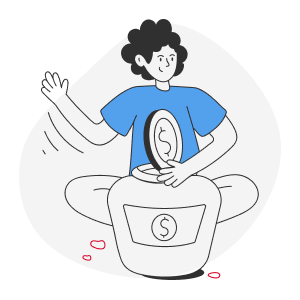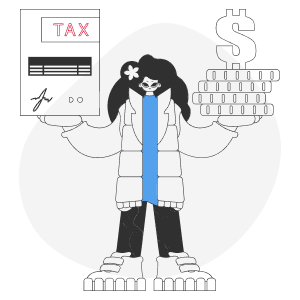Key highlights

Lump-Sum Payout
The insured receives a fixed lump-sum amount upon diagnosis of a covered critical illness, irrespective of actual medical expenses.

Coverage for Major Illnesses
Includes serious conditions such as cancer, heart attack, stroke, kidney failure, and organ transplants, ensuring financial support for costly treatments.

No Hospitalization Requirement
Unlike regular health insurance, hospitalization bills are not mandatory for claims; the payout is based on diagnosis.

Flexible Sum Insured Options
The policyholder can choose the coverage amount based on their medical history and financial needs, ensuring adequate protection.

Income Replacement Benefit
Helps manage household expenses and lost income during prolonged treatment, ensuring financial stability.

Tax Benefits
Premiums paid are eligible for tax deductions under Section 80D of the Income Tax Act, reducing financial burden.

Exclusion
-
Pre-Existing Conditions
Illnesses diagnosed before the policy purchase or during the waiting period are not covered.
-
Waiting Period Clause
A waiting period (typically 90 days) applies before claims can be made after purchasing the policy.
-
Self-Inflicted Injuries
Any critical illness caused due to self-harm, substance abuse, or suicide attempts is not covered.
-
Non-Severe Stages of Illness
Only advanced or life-threatening stages of diseases qualify for a claim; early-stage diagnoses may not be covered.
-
Congenital Conditions
Birth-related disorders or genetic diseases are usually excluded from coverage.
-
Unapproved Medical Treatments
Treatments not recognized by medical boards or undertaken outside authorized hospitals are excluded.
Types Of Critical Illness Mediclaim Policy

Standalone Critical Illness Policy
A separate policy solely covering critical illnesses without linking to any other health insurance.

Rider or Add-On
Can be attached to a standard health or life insurance plan, offering additional critical illness coverage.

Fixed Benefit Plan
Provides a pre-defined lump sum payout on diagnosis instead of reimbursing actual treatment costs.

Single Claim vs. Multiple Claim Plans
Some policies allow only one-time claims, while others permit multiple claims for different illnesses.

Indemnity-Based vs. Benefit-Based
Indemnity plans cover actual medical costs, while benefit plans pay a lump sum irrespective of expenses.

Individual vs. Family Floater
Policies available for a single person or as a floater plan covering multiple family members.
Fill Out the form and we’ll be in touch
Why is it Essential?

Critical illnesses require expensive treatments, surgeries, and long-term care, making financial backup crucial.
A major illness can lead to job loss or reduced earnings; this policy ensures financial stability.
Covers major life-threatening diseases that are often not included in standard health insurance plans.
Provides financial assurance so you can focus on recovery rather than medical bills and financial strain.
Ensures that your family does not suffer financially while managing medical expenses.
Some policies offer worldwide coverage, allowing access to the best medical facilities across the globe.



